- Posted on
- 247CODECAMP
- 2 Comments
Known to many as the technology behind cryptocurrencies like Bitcoin or Ethereum, but blockchain’s potential uses extend far beyond digital currencies.
So, what is a Blockchain?
Blockchain, as defined by Investopedia, is a distributed database or ledger that is shared among nodes of a computer network. A blockchain stores information electronically in digital format. It plays a crucial role in cryptocurrency systems (eg. Bitcoin) for maintaining a secure and decentralized record of transactions.

Why use Blockchain?
Simply because blockchain is considered extremely secured and the most reliable way of storing data, thus ensuring privacy.
The data stored in a block cannot be modified. Only subsequent blocks can be modified but would require consent between the network majority. Also, any harmful or malicious activity can be detected immediately.
Who uses Blockchain?
Aside from cryptocurrency as we know now, it turns out that blockchain is actually a reliable way of storing data about other types of transactions as well including banks, copyright protection, digital voting, reward programs, medical archiving, and more.
The integration of blockchain into banks allows consumers to see their transactions processed in as little as 10 minutes, regardless of bank holidays or time of transaction. It also allows banks to exchange funds between institutions more quickly and securely.
Healthcare providers also use blockchain to securely store the medical records of their patients using a private key only accessible to certain individuals. This will protect the data and privacy of the patients.
Some companies that have already incorporated blockchain include Walmart, Pfizer, AIG, Siemens, Unilever, Visa, Walmart and Ford.
What is a Blockchain Developer (and how to become one)
Blockchain developer is the software developer in-charge in the development of decentralized applications (dApps) and smart contracts based on blockchain technology.
There are two primary types of blockchain developers:
Core blockchain developers develop and maintain the architecture or blockchain systems, as well as designing consensus, blockchain protocols, security patterns, and network architecture.
Blockchain software developers build the applications into existing blockchain platforms. They are in-charge of the front-end programming for building interactive dApp designs, as well as back-end programming for blockchain management.
The demand for blockchain developers will continue to grow in the coming years. According to the Statista Research Department, the blockchain market is expected to climb to over 39 billion U.S. dollars in size by 2025. As a result, job opportunities in this field are abundant.
To become a successful blockchain developer, you must gain the foundational knowledge of software development and computer programming, with focus on blockchain development.
Keep in mind the following steps to becoming a blockchain developer:
- Understand the fundamentals of blockchain technology. It is very important to know the basic concepts and terminologies in the field of blockchain.
- Familiarize yourself in the blockchain industry by gaining a deeper and clearer understanding of them, and also learn about real-time blockchain applications. Stay up-to-date on the trends and in-demand skills by reading blogs or watching YouTube videos.
- Learn and acquire the required tech skills such as programming, programming languages, data structures, cryptography, smart contracts, and blockchain architecture.
- Every blockchain developer should also get some hands-on experience in addition to theoretical information.
ZipRecruiter reports that the average salary of a blockchain developer in the United States is about $149,999 a year, and can be as high as $200,000.
247CODE is an online education platform specialised in software development, we provide 24/7 teaching assistance, so you can enjoy studying at your own pace anytime anywhere!
Contact our student success team for a Free course curriculum TODAY !


This is very informative!
great read